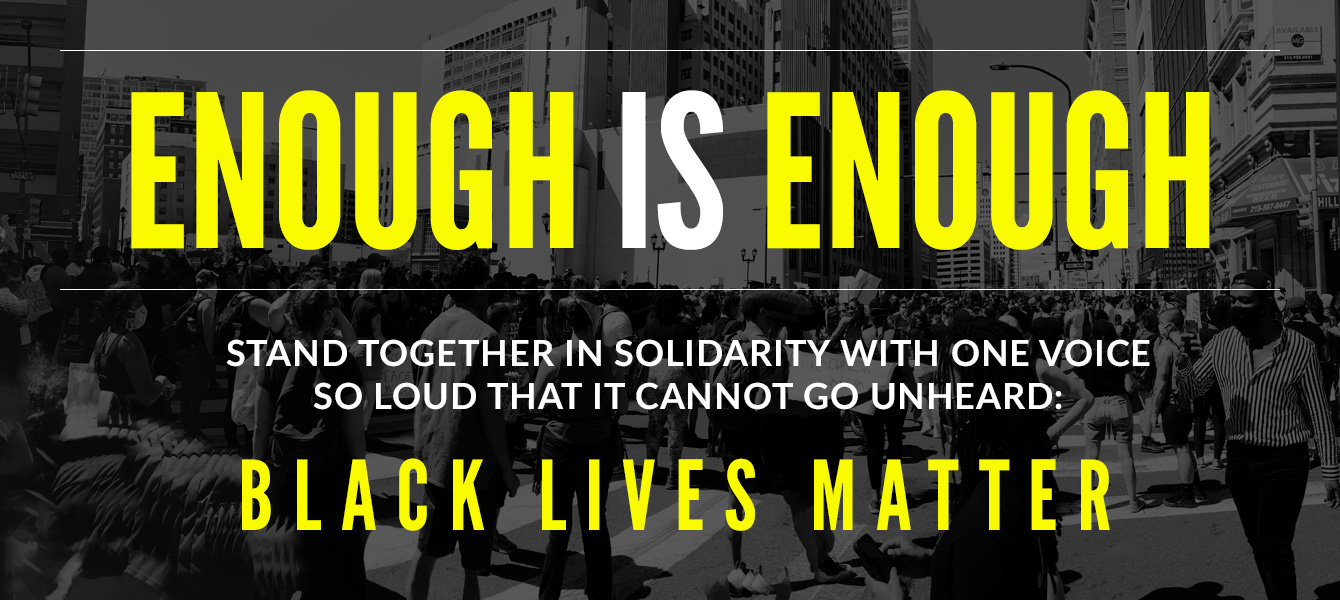Teach-In Series Opens Dialogue as a Path to Resistance
Between the outrage over widely-circulated police killings and the isolation of pandemic precautions, many in the CCP community, and across the country, spent their summers caught in a relentless cycle of grief and fear. The CCP-sponsored “Enough is Enough” teach-in sessions aimed to change that.
In late May, CCP president Donald Guy Generals announced the first virtual “Enough is Enough” event as a way to process the pain that many felt following the murder of George Floyd, especially those within the black community. With a focus on offering a path toward lasting change, the teach-ins address timely themes such as systemic racism, police brutality, and effective allyship. Each event, open to the public as well as students and faculty, is hosted via Zoom and involves both a panel and an optional “Expression Session” in which participants can openly discuss their thoughts and feelings about the panel with the guidance of college staff.
“I have spent the last few days like many of you, compelled to consume news I can hardly bear to read or watch. Once again, America’s original sin – racism – has reared its ugly head,” Generals wrote in the announcement. “It is important for every citizen to demand justice and for all of us to learn how we can hold our leaders to account.”
Moderators and panelists include professors, activists, legal experts, and local community leaders, each encouraged to be emotionally open about the topics discussed. The first session, moderated by professor and Black Studies coordinator Debonair Oates-Primus, focused primarily on how processing complicated emotions and connecting with others is essential for taking steps toward lasting change.
In a CCP newsletter following the event focusing on the Black Studies program, Oates-Primus wrote, “It is from the community that we draw our strength to face this beautiful struggle. While we are physically apart, we are not alone, even as we protest — even during the midst of a pandemic. This assurance gives us resolve.”
The “Expression Session” component of each teach-in is designed not only to educate and build similar resolve but also to provide attendees with the tools to create meaningful dialogue about these topics with their families, friends, and coworkers in the continued fight for justice.
Each session follows a set of guidelines intended to help participants effectively listen, empathize, remain genuine, and examine their own interpretations when having difficult, emotionally charged conversations.
Among the listed guidelines are suggestions to “challenge yourself to say what you really mean,” instead of using euphemisms or sarcasm; to “try to acknowledge, not correct, the generalizations and stereotypes in your own contributions”; and to respect that “participants agree that they all genuinely want to engage in order to improve their community,” before making assumptions.
According to a recent CCP newsletter, after over 500 community members tuned into each event, the teach-in series will continue in mid-October. The upcoming weekly events will lead conversations on small business relief, healthcare in the black community, systemic racism in education, and environmental racism. You can find more information about the events here.
Recordings of some past events and other antiracist resources such as book recommendations and a glossary of commonly used terms in the Black Lives Matter movement can be found here.


